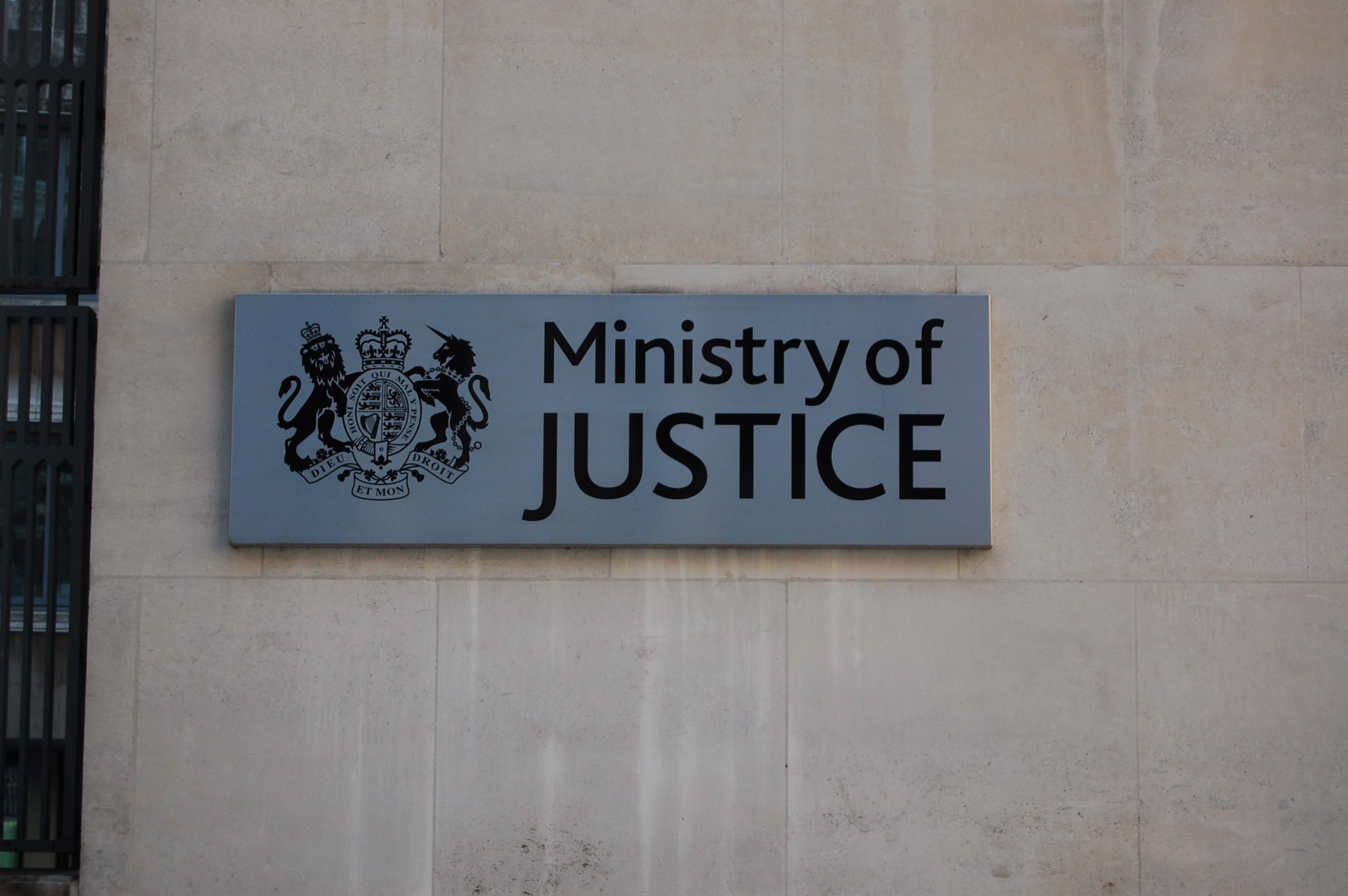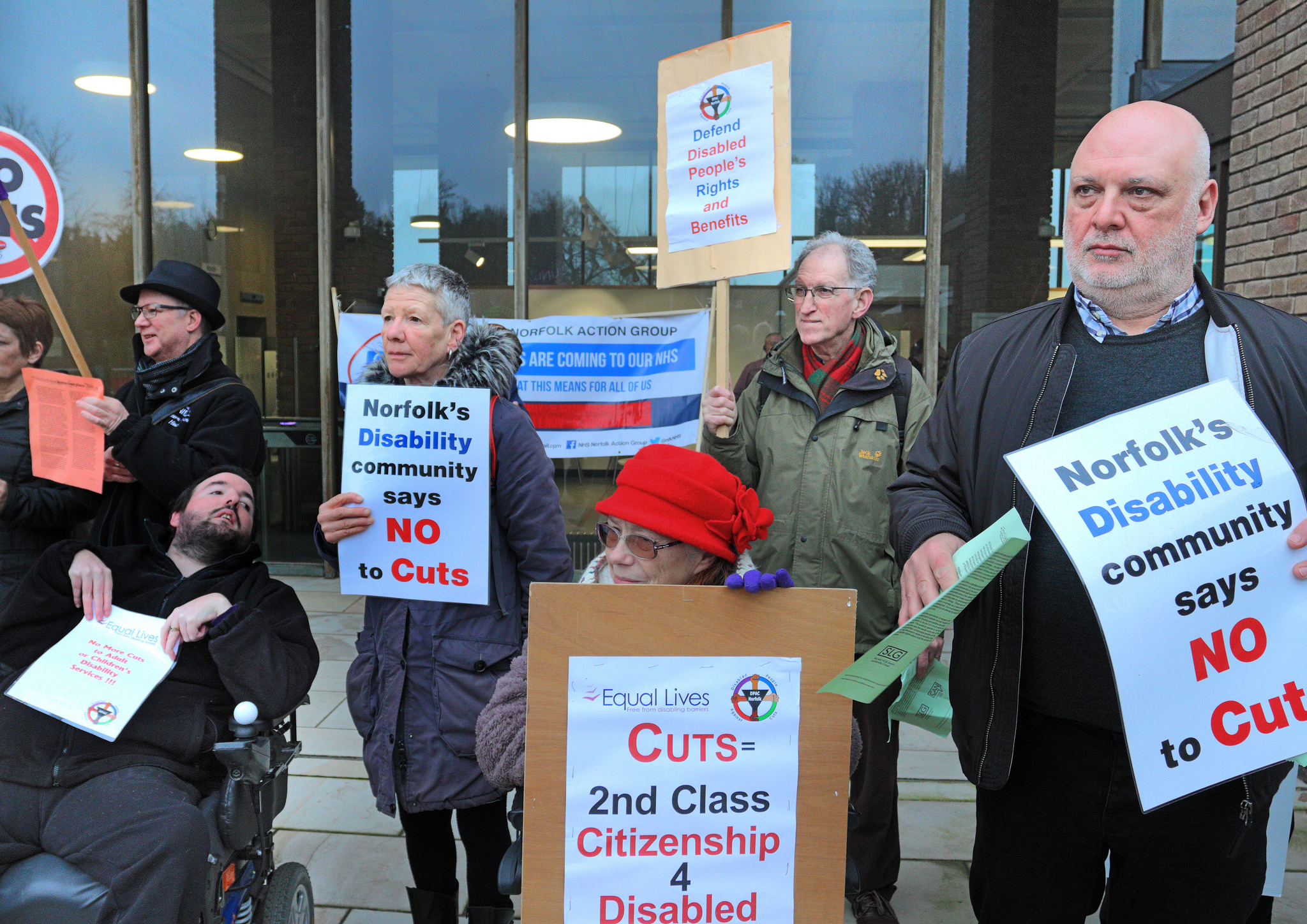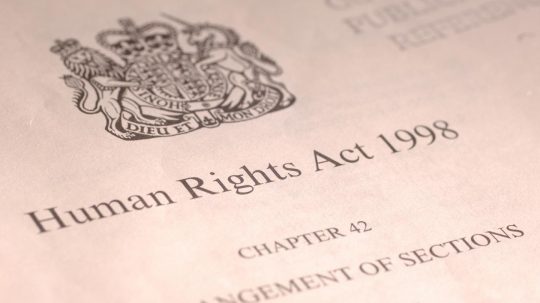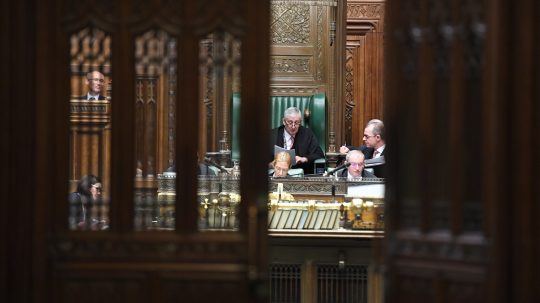On 28 February 2022, advocacy group Liberty wrote to Dominic Raab, the Secretary of State for Justice, to call for the government to extend its consultation on proposed reforms to the Human Rights Act (HRA) because it had failed to provide information in an accessible way to the public.
The consultation aims to get people’s views on the government’s proposals to replace the Human Rights Act with a Bill of Rights.
Currently, the alternative booklet the Ministry of Justice has provided to communicate the HRA consultation more accessibly is a ‘text-only’ document, which still excludes those who need adaptations such as an audio version.

Credit: Simopala/Flickr
Disabled people have been excluded
Liberty, alongside over 140 co-signatories, argues that the consultation has not been adequate because disabled people have not been able easily to access information in the primary document which spans 123 pages.
The letter to Dominic Raab states: “Despite repeated calls from Deaf and Disabled People’s Organisations (DDPOs) and human rights groups, it has taken until more than ten weeks into the consultation process for a supposedly ‘easy read’ version to be produced.”
Liberty has also warned that the text-only version excludes those with visual impairments, and, by delaying an accessible (eg audio) version, the ministry is excluding some disabled people from having their say on its planned HRA reforms. Liberty stated:
The text-only accessible version of the consultation that the Government has published is insufficient to the point of being insulting. We note the claim that an updated version is forthcoming, but with this in mind it is ever more unacceptable that no extension has been offered along with it.
Advocacy groups also warn that support must be given to people with learning difficulties to ensure everyone’s voices are heard during this consultation period.

Credit: Sharon McCutcheon/Unsplash
Actions taken now will have a lasting impact
The letter warns that actions taken now will have a direct impact on peoples lives:
There was no reason for the consultation to be launched before provision was made that would enable everyone affected to take part in the process. There is certainly no reason why disabled people should now have only 12 days – or less – to respond to proposals that will have a direct impact on their lives.
Kartik Raj, a researcher at Human Rights Watch, took to Twitter, calling the exclusion ‘unconscionable’:
1/n A thread on one — arguably telling — aspect of the UK government’s consultation on “reforming” the Human Rights Act.
Leaving people with disabilities out of the process is unconscionable. It may be down to bad or rushed planning. But that is no excuse for discrimination.
— Kartik Raj (@Kartik__Raj) March 1, 2022
Meanwhile, another Twitter user called it a ‘power grab’:
🔘 Gov opens Human
| Rights Act consultation
|
|
|
|
|
|
|
|
|
|
🔘 Gov publishes easy read doc
|
🔘 Consultation set to closeExcluding people from a consultation about our fundamental rights.
Because it's not about improving things.
It's a power grab https://t.co/3i5vR49Q68
— Dave Mulcahy (@DaveJMulcahy) March 1, 2022
Pressure from MPs is also mounting. So far, the Labour Party, Green Party and Scottish National Party have all condemned the consultation’s lack of inclusivity.
Pressure from over 140 organisations
Currently, over 140 organisations have called on the Ministry of Justice to extend the deadline for the consultation, which is currently set to close next week after 12 weeks. After publishing an ‘easy read – text only’ document, it has left disabled people with just 12 days to respond to it.
Liberty, along with its co-signatories, has called on the government to extend the consultation by 12 weeks, stating: “If the Government felt that 12 weeks was an appropriate length of time to respond to the consultation, then 12 weeks from the day that the proper easy read version is published should be the new deadline.”
Audio version to be published this week
The Ministry of Justice has stated that a large-print version has been available on request since 14 December 2021, the day the consultation began. As well as apologising to disability groups, the Ministry of Justice has stated that an audio version of the consultation will be published this week.
A spokesperson for the Ministry stated: ‘We are working urgently to address delays caused by supplier issues and have published an interim version but apologise for the wait for a fully accessible document.’
This week, we are running five days of content dedicated to the HRA, which is now at real risk. Catch up with it on our HRA spotlight here.






